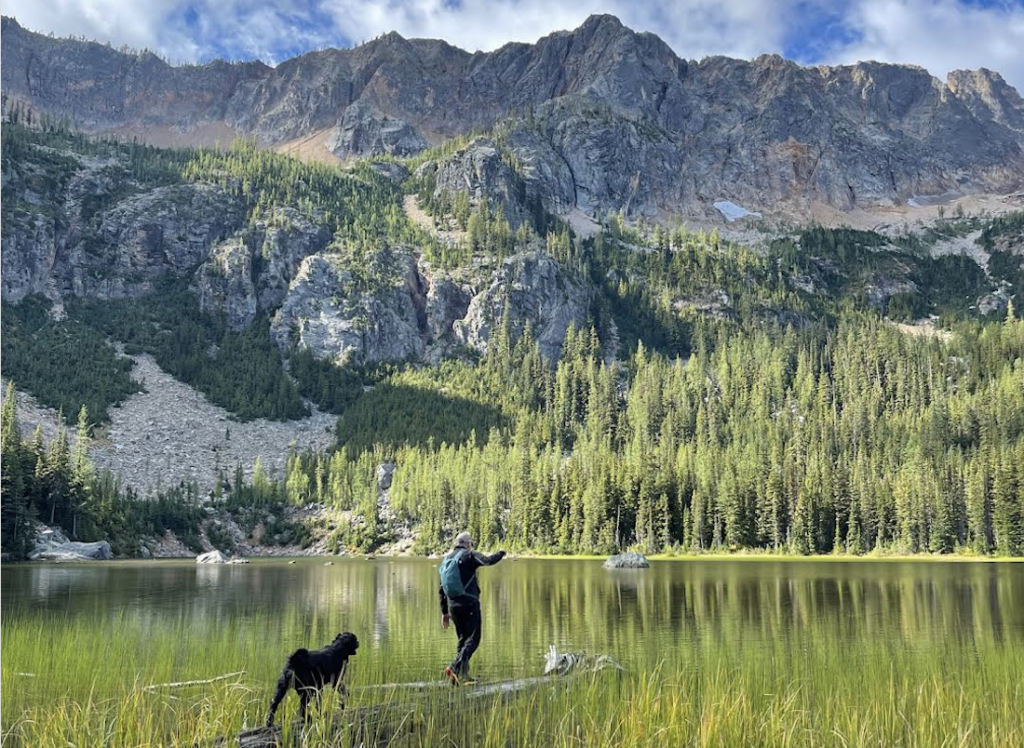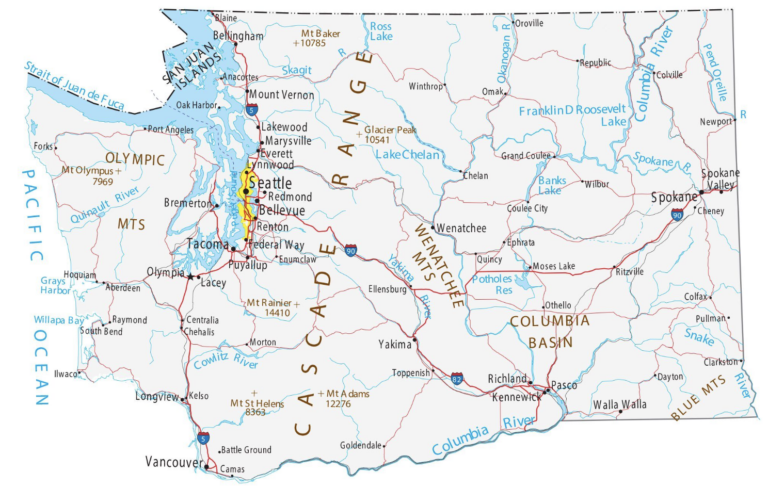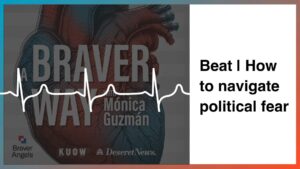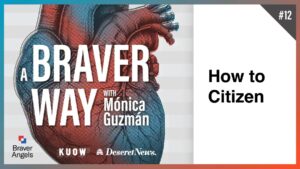For many Americans, talking about politics can be stressful, draining, and isolating. And since disagreement can drive us apart, many opt to avoid the conversation altogether. But for the Central/Eastern Washington Alliance – a group that represents the wide-ranging rural part of the state – coming together to talk about politics has helped them create a community from afar.
The Cascade Mountains – a mountain range in Washington – separates the more urban western side of the state from the more rural eastern side of the state. While Seattle – a city of 750,000 people – resides in the west, the east side’s largest city is Spokane, which has a population of a little over 200,000.
“Most of us have never met in person.”
According to the United States Census Bureau, close to 60 million people – or one in five Americans – live in rural areas like this one. “There’s a lot of land in the east, but it’s not densely populated,” said Janice Dickinson, a co-chair of the Central/Eastern Washington Alliance. This can make it harder to get together in person because members may live up to five hours away from one another. So the shift to Zoom meetings during the pandemic allowed rural alliances like this one to thrive. “Most of us have never met in person,” Janice said. “It’s not unique to us, but we may be an extreme version of it.”
Despite the distance, they’re still a close group. Unlike most alliances, which are led by two co-chairs – one Red and one Blue – the Central/Eastern Washington Alliance has six co-chairs – three Reds and three Blues – as well as an organizer, Yvonne Boyd, who coordinates logistics, sends out emails, and keeps the alliance on track. This dynamic leadership structure is inherently supportive, allowing the co-chairs to proactively combat the threat of burnout, which can happen when people are spread thin or have too many roles.
“There’s no judgment placed on people’s involvement –
we trust each co-chair will put in what they can.”
“When you have that many folks involved, no one feels pressure to be the person running the show,” Janice said. This allows each co-chair to contribute in a way they enjoy, and say no when something isn’t up their alley or they don’t have time. “There’s no judgment placed on people’s involvement – we trust each co-chair will put in what they can,” Janice said. And when something is at risk of falling through, the co-chairs are able to be agile. “It’s almost like a dance – everyone steps in where they’re needed.”
With six co-chairs, good coordination and efficient communication are key. “We meet for a half hour before our alliance meetings, communicate via email, and keep it simple,” Janice said. “It can’t be too rigid because that becomes time-consuming and drudgery.”
But having an organizer makes the difference. When they were getting their alliance off the ground, Yvonne told the group she didn’t have to be a co-chair weighing in on the decisions. “Instead, she said she can help us stay glued together,” Janice said. And she has. While the co-chairs are the decision makers, Yvonne is the facilitator. “It’s a fantastic way to do it – she’s kept us moving forward.”
“When you are super polarized, there’s no humor in politics – everything is life and death – but as you get depolarized, you see more diversity and you can find more joy and humor.”
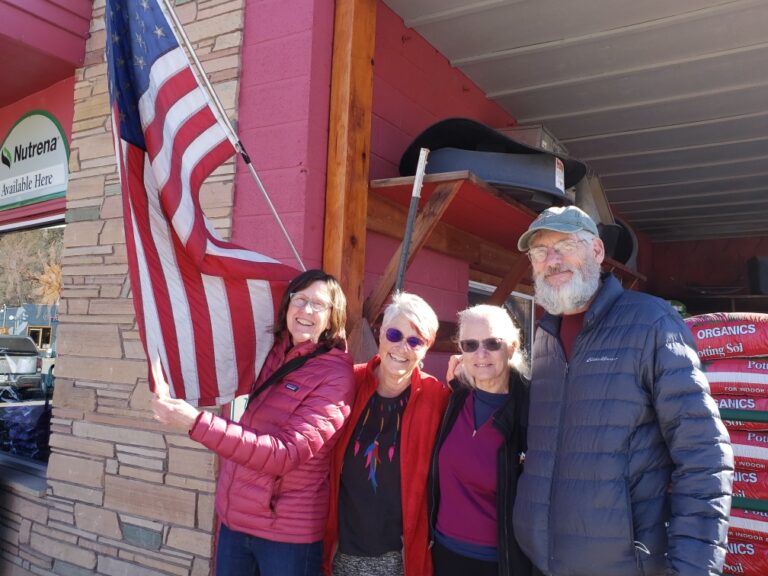
With the right structure and proper flow, there’s more room to enjoy each other’s company. “When you are super polarized, there’s no humor in politics – everything is life and death – but as you get depolarized, you see more diversity and you can find more joy and humor,” Janice said. “You have to have fun and you have to laugh.”
A few weeks after speaking with Janice, I dropped into an Central/Eastern Washington Alliance meeting to see firsthand how it operates. I immediately felt the sense of warmth and welcome she described, despite Zooming in from almost 3,000 miles away in Boston.
When I got there, I first met Yvonne, and then was introduced to Emily Jacobs, Mary Lynn Hutchison, Shane Gronholz, Sharon Lonergan, and Tom Silva, the five other co-chairs who, with Janice, lead the alliance. Before the meeting started, they caught up with each other, shared stories about their day, and laughed together. I thought back to a point Janice made when we initially spoke: the more of a relationship you have beyond politics, the easier it is to talk across differences.
I immediately felt the sense of warmth and welcome
she described, despite Zooming in from almost
3,000 miles away in Boston.
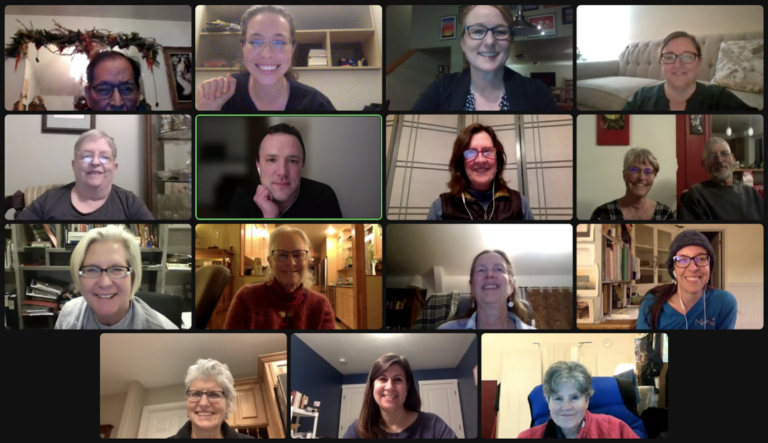
That night, the alliance hosted Questions of Curiosity, a program they launched as a way to connect their members with subject-matter experts so they can openly ask questions and gain a deeper understanding of different issues. The speaker that night was Chariss Warner, the Director of Ministries at Tri-City Union Gospel Mission, an organization that works with the homeless population in Southeast Washington.
At the end of the meeting, Chariss addressed the group: “Doing this work makes me feel like a lone ranger at times, so thank you for caring enough to spend your evening learning about this.” In return, the members of the Central/Eastern Washington Alliance sat from their homes – each possibly hours apart from each other – and showed appreciation for yet another opportunity to learn, laugh, and connect with one another. They showed that even in rural regions, Braver Angels alliances are building communities and bridging the political divide.
For more information on Braver Angels alliances and how to get involved, go to this link. To learn more about the Central/Eastern Washington Alliance in particular, go to this link. To suggest more stories I could report from the Braver Angels community, send me a note at gtimmis@braverangels.org.

